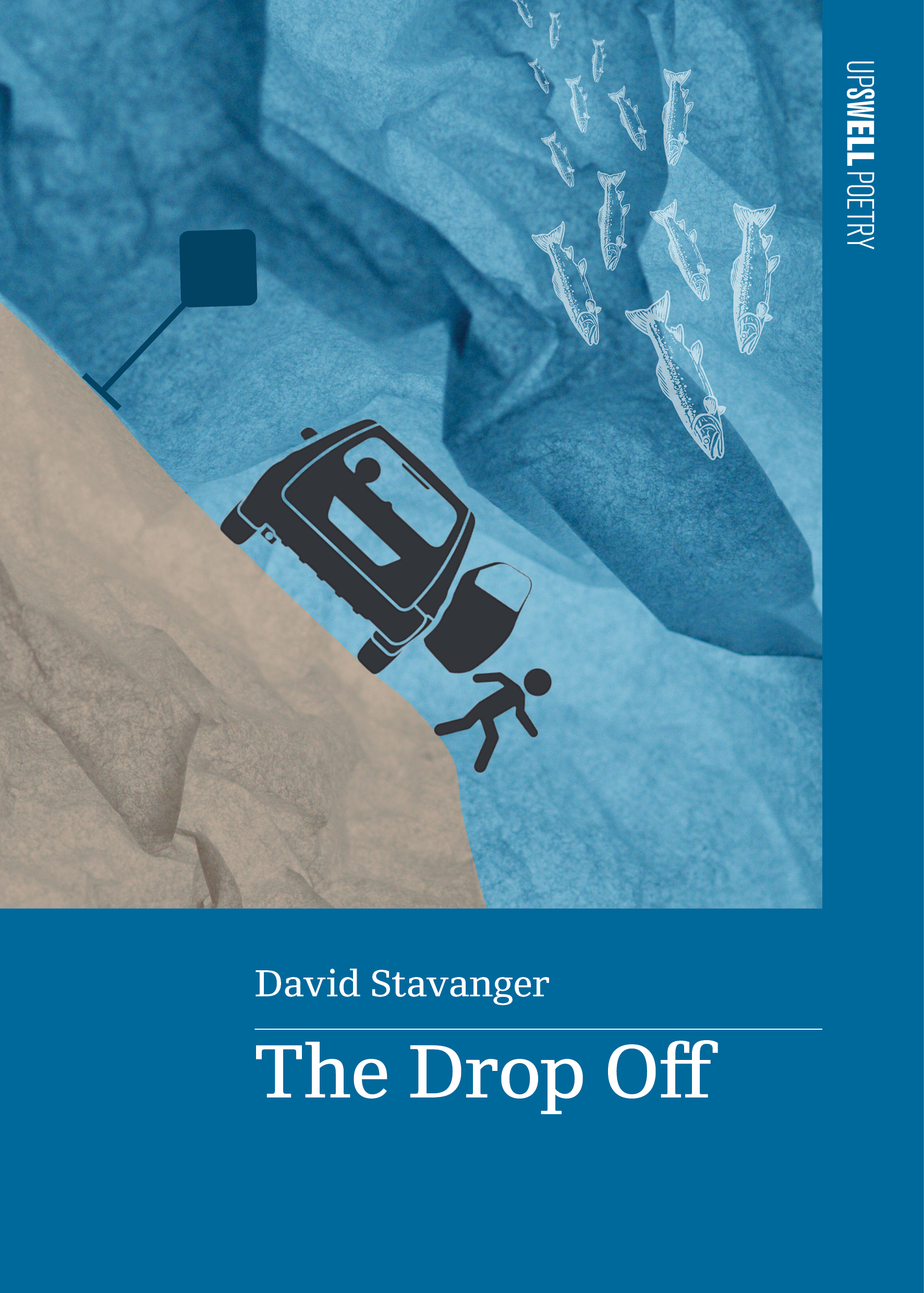
- Free Article: No
- Contents Category: Poetry
- Review Article: Yes
- Article Title: Disappearing into an idea
- Article Subtitle: Dwelling on the ambiguities of language
- Online Only: No
- Custom Highlight Text:
David Stavanger’s third collection of poetry, The Drop Off, disintegrates binaries and social expectations with post-structuralist fervour, occupying and exploring the liminal space of broken families, neo-liberal cultures, mental health and, of course, language. Stavanger’s poetry is both pithy and undercutting, anathematic and loving, political and personal – and often, as is the case with such duplicitous poetry, these themes express themselves simultaneously, almost co-dependently.
- Featured Image (400px * 250px):

- Alt Tag (Featured Image): Will Hunt reviews ‘The Drop Off’ by David Stavanger
- Book 1 Title: The Drop Off
- Book 1 Biblio: Upswell, $24.99 pb, 104 pp
- Book 1 Cover Small (400 x 600):

- Book 1 Cover (800 x 1200):

- Book 1 Readings Link: https://www.readings.com.au/product/9780645984088/the-drop-off--david-stavanger--2025--9780645984088#rac:jokjjzr6ly9m
This thematic pre-occupation is perhaps most clear within the title poem. ‘The Drop Off’ is split into numbered sections; curiously these range from three to eighteen. We begin, then, in the space of the number three – the third space – and with the detached second-person form from which Stavanger writes, almost confessionally, to himself: ‘You unconsciously coupled / You consciously uncoupled / In between you had a child with your combined chromosomes, / threads dividing under microscope. / He was three when things fell apart …’ The linguistic inversion of ‘You unconsciously coupled / You consciously uncoupled’ is typical of Stavanger’s tendency to break words into their compartments, revelling in their polysemy and ambiguity.
A key presence in ‘The Drop Off’, and a recurrent theme throughout the collection, is absence: parental absence, the absence of the self, the absence of children, the absence of the right words (should such a thing exist). In some moments, Stavanger pendulates between regretting both his absence and his presence, especially in the sixth section of the poem: ‘You were away a lot that year. / You treated your son as an inconvenience. / You disappeared into the idea / you were important.’ The poetry is declarative and reflective, admitting the ego but also relinquishing it. The juxtaposition between the anaphora and the understated, lowercase ‘you’ seems to illustrate this disintegration of the past self. Perhaps as the family unit divides into ‘threads’ so too does the self.
Stavanger’s poems regularly culminate with an aphoristic one-liner or a humorous, absurd, or disturbing insight. This is not to say that he builds to an epiphanic moment, as is the case with much uninspiring poetry. Stavanger dwells in liminal, uncategorisable spaces, rejecting absolutes and resolutions. This can be seen in the final line of ‘Vision’ (‘The script is written before we open our eyes’) and in the sardonic closing sentence of the prose-poem ‘Review’ (‘the main thing I learnt in my twenties || is that people like him || will always take the last beer || from your fridge’). The ‘him’ in this second poem is that classic creature of neo-liberal Australia: the real estate agent.
Stavanger’s two earlier poetry collections, The Special (2014) and Case Notes (2020), consider the language of mental health. Stavanger also co-edited Admissions (2022), a polyphonic collection of voices surveying difficult mental health experiences in Australia. Frequently, Stavanger’s analysis of the language of mental health destabilises categorisation and labels. In the poem ‘Depression is a strange thing’, from Case Notes, he claims that ‘Anyone that writes about madness with certainty has never been mad, I’m certain of it.’ In ‘Intensifier’, Stavanger offers many ways of defining (in the loosest sense of the word) psychiatry: in one instance, he defines psychiatry dialectically in relation to sharks (‘humanity is not on the menu’); in another, psychiatry is defined with reference to dentistry (‘Still get to drill holes in people’). These ironic and cynical associations reveal Stavanger at his best.
While certainly present in The Drop Off, this consideration of the language of mental health is often accompanied by a consideration of the vernacular of capitalism. Stavanger indulges in polysemy, in breaking words into their parts, in analysing the ways in which the language of neo-liberalism has penetrated everyday speech. In ‘Joint Statement’, for instance, Stavanger writes ‘our careers are of paramount import(ance)’; ‘we have mutually resolved to end this transaction amicably’. In the eponymous poem there is ‘child cargo’; in ‘The Experience Economy’ (a telling title) there is this: ‘The first-born is often a non-fungible commodity’. At the beach with his children, who refuse to swim because of the seaweed, Stavanger, with humorous self-awareness, notes: ‘I ask them what it feels like / they say the texture is too great for words / unable or unwilling to create a cheap simile / for me to use in this public domain’ (Seaweed).
The book’s cover features a dramatic ‘drop off’: a black silhouette of a man walks off the side of a cliff while someone, presumably a child, remains in the car, the direction of the child’s vision indeterminate. It is this ambiguity – two isolated individuals, close but distant – that permeates The Drop Off and its consideration of family, capitalism, language, and the self.


Comments powered by CComment